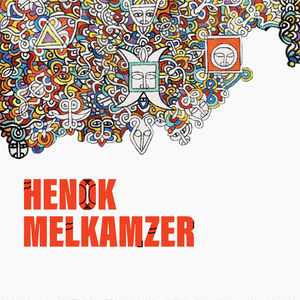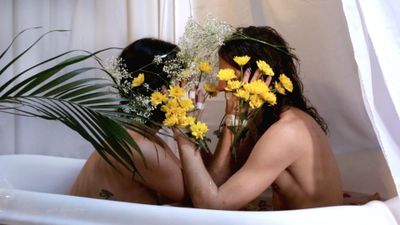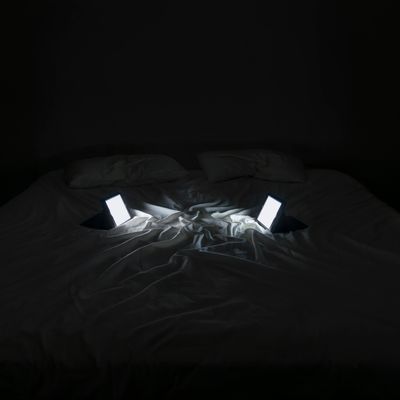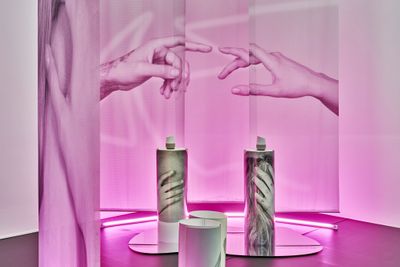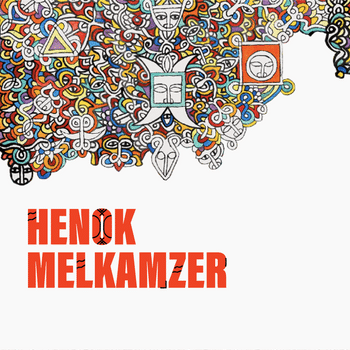Is Love Too Unfashionable for a Contemporary Art Show?
The emotion is the subject of Katerina Gregos's travelling exhibition MODERN LOVE, which was expanded for its opening at EMΣT Athens this week.

Marge Monko, I Don't Know You, So I Can't Love You (2018) (detail). Smart assistants, speakers, and pigment prints. Courtesy the artist. Exhibition view: Museum für Neue Kunst, Freiburg, DE. Photo: Bernhard Strauss.
An exhibition about bleeding-edge problems afflicting the heart will soon arrive at EMΣT Athens, Greece's National Museum of Contemporary Art.
MODERN LOVE (or Love in the Age of Cold Intimacies) opens Thursday 15 December and continues through 28 May 2023.
The expanded exhibition, which features 24 artists from 14 countries, comes to Greece following presentations at the Museum für Neue Kunst in Germany, Tallinna Kunstihoone in Estonia, and the Netherlands' IMPAKT and Centraal Museum.
It was curated by Katerina Gregos, who is based in Athens and Brussels. Gregos was the chief curator of the first Riga Biennial in 2018, and served as the artistic director of Art Brussels for four years.
Gregos described love as 'an unfashionable subject in contemporary art'.
She told Ocula Magazine that 'there is a strange latent prejudice' against love in contemporary art, despite its ability to 'radically transform human beings in ways unlike any other force.'
She said love alone was 'too broad a question' for an exhibition, but she wanted to explore the ways the digital revolution has 'radically affected social relations'.
The subtitle of the exhibition references sociologist Eva Illouz's 2007 book Cold Intimacies: The Making of Emotional Capitalism, which argues that the workplace has become more emotional. Employers increasingly seek out employees with high EQs, for instance, and 'likes' and emojis have become commonplace in office chat applications and emails.
Simultaneously, our intimate relationships are increasingly defined by models of bargaining, exchange, and equity. Apps like Tinder and Grindr offer a sense of abundance and replaceability that hollows out our relationships, leading to more selfish behaviour and ersatz online identities.
Among the works that most touch on Gregos's own feelings about intimacy in the digital age is Ariane Loze's short film Our Cold Loves, in which the artist portrays different users of a dating app, including an algorithm who quantifies the factors that impact sexual attraction.
'The work explores the secret mechanisms that power dating apps, the illusion of love on which their operation relies, and the illusory quality of many online exchanges,' Gregos said.
Another highlight is Maria Mavropoulou's The Lovers (2018), from her 'Family Portraits' series. The work is a light box that depicts two iPads staring at each other across messy sheets, no longer separated by the back to back human lovers who might be using them while neglecting one another.
Gregos said the series 'indicates the intrusiveness and ubiquity of these apparatus and how they follow us everywhere, even into the most private of places.'
Estonian artist Marge Monko's installation I don't know you so I can't love you (2018) similarly foregrounds the intrusiveness of devices. It centres on two Google Home assistants who hold a romantic conversation. The work also includes photographs of a body as fragmented as our attentions in the age of TikTok.
For its presentation at EMΣT Athens, MODERN LOVE was significantly expanded to make use of the larger venue, with several Greek and international artists joining the exhibition.
It will be followed in January 2023 by five solo exhibitions further exploring digital technologies' impact on social relations.
Gregos hopes the show will make us reevaluate the impact social media has on our private lives.
'At the same time,' she said, 'I hope it prompts us to think of the values of real physical relationships and what is actually required.' —[O]


